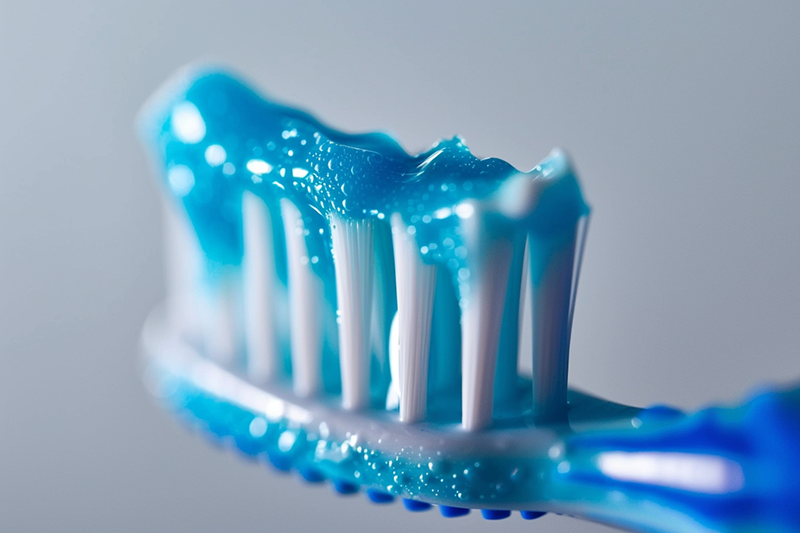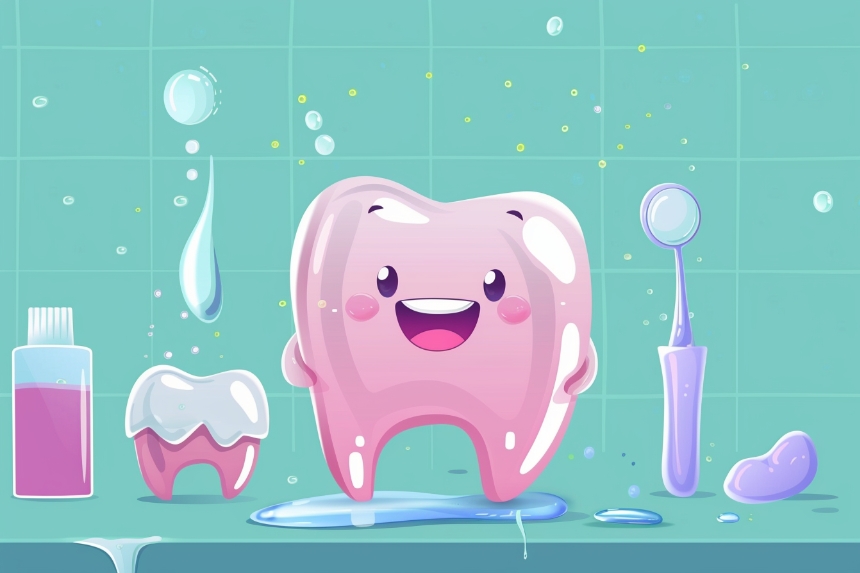10 Powerful Insights on the Long-term Health Effects of Using Fluoride Toothpaste
Introduction
Fluoride toothpaste has long been championed for its role in preventing dental cavities, a significant public health achievement. Yet, like any widespread health intervention, it warrants scrutiny. Understanding the long-term health effects of using fluoride toothpaste involves examining how fluoride accumulates in the body, its potential impacts on bone health, thyroid function, and neurodevelopment, and strategies to mitigate any associated risks. This exploration is not just an academic exercise; it touches on real-life implications for millions worldwide who use fluoride toothpaste daily.
Fluoride Accumulation in the Body
Mechanisms of Fluoride Absorption
Fluoride enters the body primarily by ingesting fluoridated water, food, and dental products like toothpaste. Once ingested, it is absorbed in the stomach and small intestine. The efficiency of this absorption can vary based on dietary factors and the presence of other minerals. For instance, calcium can form insoluble complexes with fluoride, reducing absorption.
Fluoride Storage in Bones and Teeth
After absorption, fluoride is transported via the bloodstream and is predominantly stored in bones and teeth. Bones act as reservoirs, continuously incorporating and releasing fluoride based on plasma levels. In teeth, fluoride helps in remineralization, making enamel more resistant to acid attacks from bacteria. This dual storage mechanism is crucial for its dental benefits but raises questions about the long-term consequences of continuous accumulation.
Fluoride in Soft Tissues
While bones and teeth hold the majority of fluoride, it also accumulates in smaller amounts in soft tissues such as the brain, liver, and kidneys. The concentration in these tissues can influence various physiological processes, potentially leading to adverse health effects if levels become excessive. Notably, the kidney plays a critical role in fluoride excretion, and impaired kidney function can exacerbate fluoride retention.
Impact of Water Fluoridation
Water fluoridation is a public health measure that reduces dental caries across populations. However, its impact extends beyond dental health. Fluoride intake from water adds to the cumulative exposure from other sources like food and dental products. The balance between its benefits and risks is a subject of ongoing debate, emphasizing the need for continuous monitoring and research.
Potential Impact on Bone Health
Fluoride and Bone Density
Fluoride is known to influence bone density. It can stimulate bone formation in controlled amounts, potentially benefiting individuals with osteoporosis. However, excessive fluoride intake can lead to increased bone mass that is structurally unsound, raising concerns about the risk of fractures.
Fluoride’s Role in Bone Remodeling
Bone remodeling is a dynamic process in which old bone is resorbed, and new bone is formed. Fluoride affects this process by enhancing the activity of osteoblasts (bone-forming cells). While this might seem beneficial, it can lead to the formation of bone that is more brittle and prone to fractures over time.
Risks of Skeletal Fluorosis
Skeletal fluorosis is a condition resulting from prolonged exposure to high fluoride levels. It manifests in various stages, from mild symptoms like joint stiffness and pain to severe deformities and immobility. Understanding the threshold levels that lead to such conditions is essential for setting safe exposure limits.
Comparison with Other Minerals
Comparing fluoride with other essential minerals like calcium and magnesium highlights its unique role and potential risks. While calcium and magnesium are crucial for bone health, excessive fluoride can disrupt the balance, leading to adverse effects. This comparison underscores the importance of maintaining a balanced mineral intake for optimal bone health.
Fluoride Toothpaste and Thyroid Function
Thyroid Hormone Production and Regulation
The thyroid gland regulates metabolism, growth, and development by producing thyroid hormones. Fluoride’s chemical similarity to iodine, an essential element for thyroid hormone production, raises concerns about potential interference with thyroid function.
Fluoride Interference with Iodine
Iodine is vital for the synthesis of thyroid hormones. Chemically similar fluoride can compete with iodine, potentially inhibiting thyroid function. This interference can reduce hormone production, impacting metabolic processes and overall health.
Studies on Fluoride and Thyroid Health
Numerous studies have investigated the relationship between fluoride exposure and thyroid health. Some suggest a correlation between high fluoride intake and reduced thyroid function, particularly in areas with endemic iodine deficiency. These findings highlight the need for further research to understand the implications fully.
Thyroid Disorders and Fluoride Exposure
Thyroid disorders, including hypothyroidism and autoimmune thyroiditis, may be influenced by fluoride exposure. While the evidence is inconclusive, some epidemiological studies suggest an increased risk of these conditions in populations with high fluoride intake. This potential link warrants careful consideration in public health policies.
Neurodevelopmental Concerns with Fluoride Exposure
Critical Periods of Brain Development
Brain development occurs in critical periods, particularly in utero and early childhood. During these times, exposure to neurotoxic substances can have profound and lasting effects. Fluoride’s ability to cross the blood-brain barrier raises concerns about its impact during these vulnerable stages.
Studies Linking Fluoride to Neurodevelopmental Issues
Recent studies have explored the potential link between fluoride exposure and neurodevelopmental issues. Some research suggests an association between high fluoride intake during pregnancy and lower IQ scores in children. While these studies are not definitive, they point to a need for cautious evaluation of fluoride exposure during pregnancy and early childhood.
Behavioral and Cognitive Effects
Beyond IQ, fluoride exposure has been studied for its potential effects on behavior and cognitive function. Some evidence suggests that excessive fluoride intake may be associated with attention deficit hyperactivity disorder (ADHD) and other behavioral issues. Understanding these potential impacts is crucial for developing guidelines to protect children’s health.
Comparison with Other Neurotoxins
Fluoride’s neurotoxic potential can be compared to well-known neurotoxins like lead and mercury. While fluoride is less potent, its widespread use and cumulative exposure raise significant concerns. This comparison highlights the importance of ongoing research and vigilance in managing fluoride exposure.
Mitigating Long-term Risks of Fluoride Use
Optimal Fluoride Concentrations
Determining the optimal concentration of fluoride in dental products and drinking water is essential to balancing benefits and risks. Public health guidelines recommend specific levels to maximize dental health benefits while minimizing potential adverse effects. As new evidence emerges, these guidelines must be continuously reviewed and adjusted.
Alternatives to Fluoride Toothpaste
Several alternatives to fluoride toothpaste are available for those concerned about fluoride exposure. These include toothpaste with natural ingredients like xylitol, baking soda, and essential oils, which can effectively maintain dental health without fluoride.
Public Health Recommendations
Public health recommendations play a crucial role in managing fluoride exposure. These guidelines must be based on robust scientific evidence and consider the diverse sources of fluoride in the environment. Transparent communication with the public about the benefits and risks of fluoride use is also essential.
Fluoride-Free Dental Care Products
The fluoride-free dental care products market is growing, reflecting increasing consumer demand. These products offer alternatives for those seeking to reduce their fluoride intake while maintaining good oral hygiene. Reviewing the effectiveness and safety of these products is essential for informed consumer choice.
Personal Habits to Reduce Fluoride Exposure
Individuals can adopt several habits to reduce fluoride exposure, such as using fluoride-free toothpaste, consuming non-fluoridated water, and being mindful of the fluoride content in food and beverages. These practices can help manage cumulative fluoride intake and mitigate potential health risks.
Role of Diet in Managing Fluoride Levels
Diet plays a significant role in managing fluoride levels in the body. Consuming calcium, magnesium, and vitamin D-rich foods can help balance fluoride absorption and promote overall bone health. Additionally, limiting the intake of processed foods and beverages with high fluoride content can further reduce exposure.
Try Lidercare Now!
We Help You Launch New Products, And Continue To Grow. Try Us With 20% Off Your First Order!
FAQs
What are the long-term health effects of using fluoride toothpaste?
Fluoride toothpaste helps prevent dental cavities, but long-term use can lead to fluoride accumulation in the body, potentially impacting bone health, thyroid function, and neurodevelopment.
How does fluoride accumulate in the body?
Fluoride is absorbed through the stomach and small intestine and stored mainly in bones and teeth. It can also accumulate in smaller amounts in soft tissues like the brain, liver, and kidneys.
Can fluoride in toothpaste affect bone health?
Yes, fluoride influences bone density and remodeling. While it can strengthen bones in small amounts, excessive fluoride can lead to skeletal fluorosis, characterized by joint pain and stiffness.
What is the relationship between fluoride and thyroid function?
Fluoride can interfere with iodine, which is essential for thyroid hormone production. High fluoride intake may inhibit thyroid function, potentially leading to thyroid disorders.
Are there neurodevelopmental concerns associated with fluoride exposure?
Some studies suggest that high fluoride intake during pregnancy and early childhood may be linked to lower IQ scores and behavioral issues in children. However, more research is needed to confirm these findings.
How can I mitigate the risks of fluoride use?
To mitigate risks, use fluoride-free dental products, consume non-fluoridated water, maintain a balanced diet rich in essential minerals, and follow public health recommendations on optimal fluoride concentrations.
Conclusion
The long-term health effects of fluoride toothpaste involve a complex interplay of benefits and potential risks. While fluoride’s role in preventing dental cavities is well-established, its impact on bone health, thyroid function, and neurodevelopment requires careful consideration. By staying informed, adopting fluoride alternatives when necessary, and following public health guidelines, individuals can make informed decisions to safeguard their health while enjoying the benefits of fluoride toothpaste.
Table of Contents
Awesome! Share to:
Latest Blog Posts
Check out the latest industry trends and take inspiration from our updated blogs, giving you a fresh insight to help boost your business.





